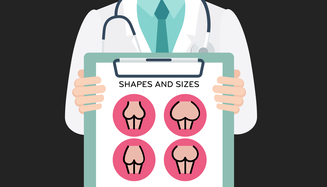
Larkin Hospital South Miami
7031 SW 62nd Ave. South Miami, 33143.
Tel: (305) 284-7500 | View
Gastric Band, Sleeve Gastrectomy, Gastric Bypass Surgery
The obesity epidemic is a public health crisis with an estimated 300,000 deaths per year in the U.S. alone. 66% of the national population is either overweight or obese and the number continues to rise. A common response to these stats is to blame the epidemic on the afflicted person’s lack of personal motivation or self-control; however, behavioral, environmental, and genetic factors play significant roles that are commonly overlooked. For example, medical conditions that can increase appetite and in some cases cause states of perpetual hunger include hyperphagia, hypogonadism, hyperthyroidism, hypoglycemia, and diabetes.
Being obese or overweight can increase the risk of acquiring moderate to life-threatening symptoms and conditions such as:
• Coronary Heart Disease
• Type 2 Diabetes
• Hypertension
• Arthritis
• Infertility
• Depression
• Stroke
Bariatric surgery, also known as weight loss surgery, is one method to reduce the prevalence of people that are overweight or obese by surgically reducing the size, narrowing the diameter, or restructuring the stomach and digestive track. These techniques not only limit the patient’s ability to intake food but also give the patient the perception of being full with less food than what would have been necessary before the surgery.
Three common surgical techniques used are adjustable gastric band, sleeve gastrectomy, and gastric bypass surgery. Our Board-Certified Bariatric Surgeons have performed thousands of these surgeries and other techniques to help control a patient’s urge to over eat, thereby improving their health.



After surgery, our team of registered dieticians, physical therapists, and physicians provide education and counseling to promote well-balanced diets, exercise, and healthy lifestyles to help break the cycle of unhealthy behaviors leading to obesity or becoming overweight.
Body Mass Index (BMI) is a metric used to determine if a patient falls in the category of class 3 obesity, obesity, overweight, normal, or underweight by dividing a person’s weight (kg) by their height (m2). Although BMI is not a direct measurement of body fat (like a skinfold thickness measurement) it is correlated to body fat content and a commonly used clinical metric.
| Category | BMI |
| Underweight | < 18.5 |
| Normal Weight | 18.5 - 24.9 |
| Overweight | 25.0 - 29.9 |
| Class I & II Obesity | 30.0 - 39.9 |
| Class III Obesity (Morbidly Obesity) | > 40 |
Reduced exercise and physical activity
• Sedentary Lifestyles
• Super-sized portions
• Sugar-laden products
• Food commercials and marketing tactics targeting children
Weight-loss Surgery (Bariatric Surgery) | Larkin Health Please Visit or Call The Following Facilities.
Physicians Treating Weight-loss Surgery (Bariatric Surgery) | Larkin Health.